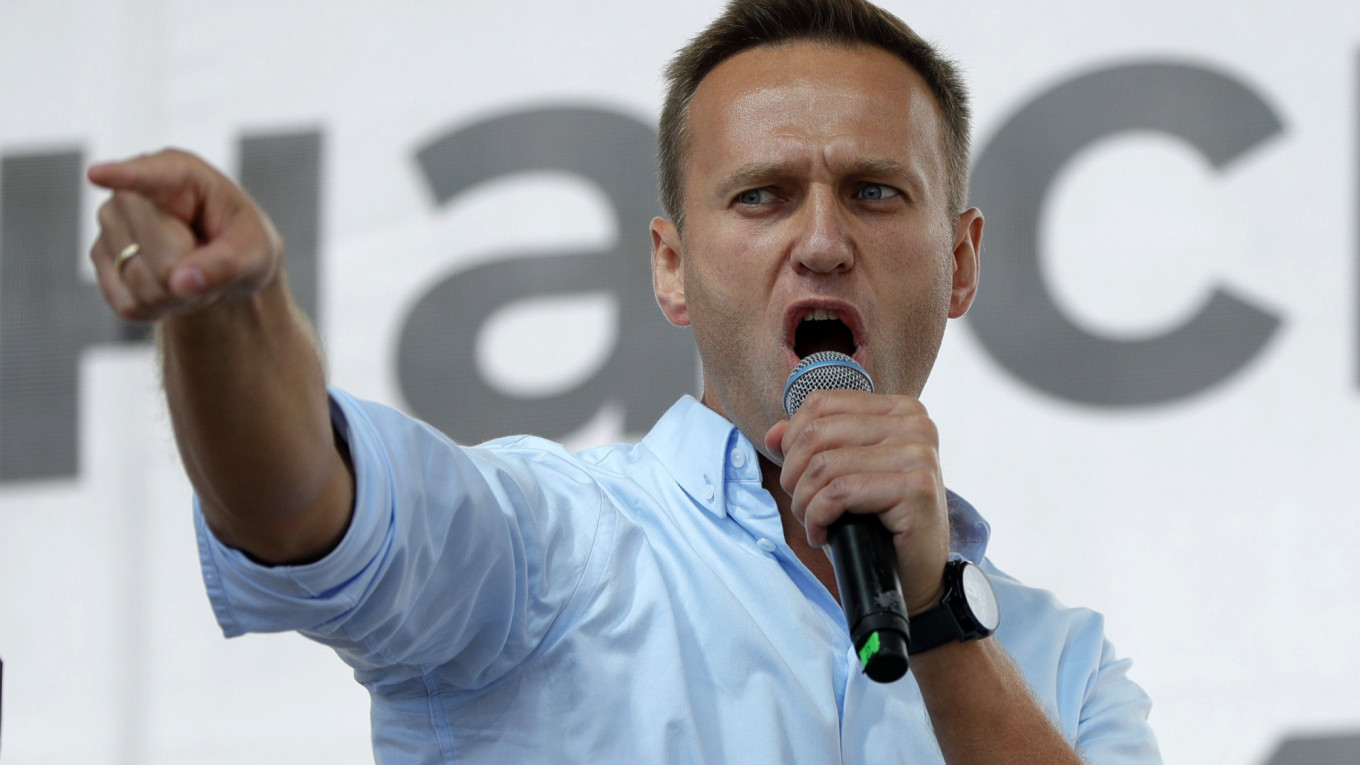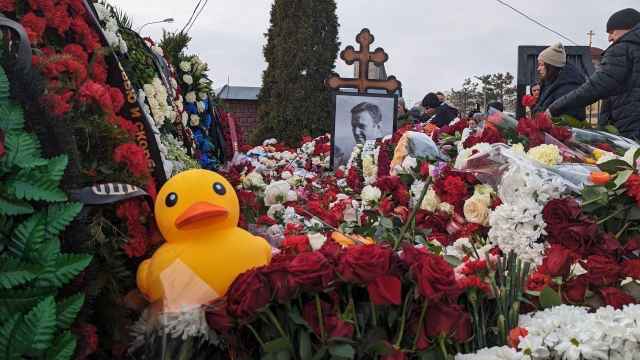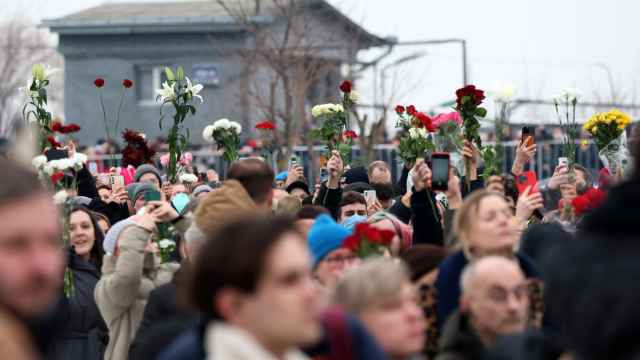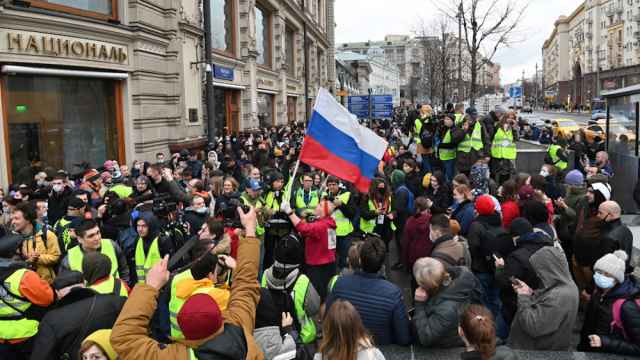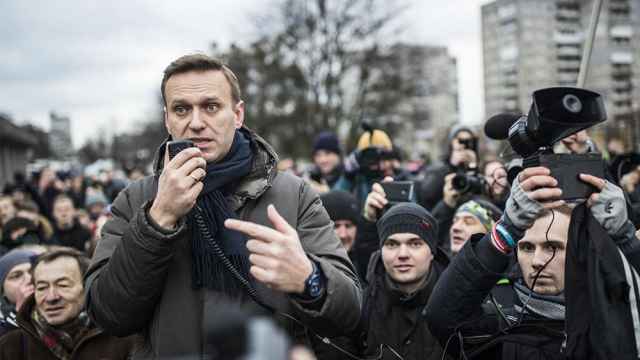Russian opposition leader Alexei Navalny was hospitalized on Sunday after suffering an acute allergic reaction which one doctor said may have been the result of him being poisoned with an unknown chemical substance.
Navalny, 43, was rushed to hospital on Sunday morning from jail where he is serving a 30-day sentence for violating tough protest laws, a day after police in Moscow detained over 1,000 people for an illegal demonstration which Navalny called for.
His spokeswoman Kira Yarmysh said Navalny had signs of an acute allergy with "severe swelling of the face and skin redness."
Doctors at the hospital treating him have yet to publicly disclose their diagnosis and the precise cause of his symptoms remains unknown.
But one doctor who has treated him in the past and was able to briefly speak to him and look at him through the crack of a door on Sunday said she could not rule out that he had been poisoned.
"We cannot rule out that toxic damage to the skin and mucous membranes by an unknown chemical substance was inflicted with the help of a 'third party'," Anastasia Vasilyeva, the doctor, wrote on Facebook.
Vasilyeva, who said Navalny had a rash on his upper body, skin lesions, and discharge from his eye, called for samples of Navalny's bed sheets, skin and hair to be tested for chemicals.
She said she found the fact that she had not been allowed to examine him properly suspicious.
The Moscow hospital where Navalny's spokeswoman said he was being treated could not be reached for comment.
Separately, Navalny's lawyer, Olga Mikhailova, wrote on Facebook on Sunday evening that doctors did not know what was wrong with her client, but that she deemed his symptoms strange given that he had never suffered from allergies in the past.
Navalny suffered a serious chemical burn to his right eye in 2017 as a result of an assault. Doctors were able to restore his sight and save the eye.
He was jailed on Wednesday this week for 30 days for calling for Saturday's unauthorized march to protest against the exclusion of several opposition candidates from a local election later this year.
While Navalny was behind bars, police rounded up more than 1,000 people in the Russian capital at the rally on Saturday in one of the biggest crackdowns in recent years against the opposition, drawing international criticism.
A spokeswoman for the U.S. Embassy in Moscow, Andrea Kalan, wrote on Twitter on Sunday that the large number of detentions in Moscow and the "use of disproportionate police force undermine rights of citizens to participate in the democratic process."
Opposition activist detained
In a separate incident on Sunday, Russian activist Dmitry Gudkov, who was among the opposition candidates barred from running in local elections later this year, said he had been detained and taken to a Moscow police station.
The reason for Gudkov's detention was not immediately clear, his spokesman Alexei Obukhov said.
Russia's Interior Ministry did not respond to a request for comment on Navalny and Gudkov's detention.
Police on Sunday night detained about 10 people, including journalists, who had gathered in front of the hospital where Navalny was being treated.
Navalny, a lawyer and anti-corruption activist, has served several stints in jail in recent years for organizing anti-government demonstrations.
The European Court of Human Rights last year ruled Russia's arrests and detention of Navalny in 2012 and 2014 were politically motivated and breached his human rights, a ruling Moscow called questionable.
A Message from The Moscow Times:
Dear readers,
We are facing unprecedented challenges. Russia's Prosecutor General's Office has designated The Moscow Times as an "undesirable" organization, criminalizing our work and putting our staff at risk of prosecution. This follows our earlier unjust labeling as a "foreign agent."
These actions are direct attempts to silence independent journalism in Russia. The authorities claim our work "discredits the decisions of the Russian leadership." We see things differently: we strive to provide accurate, unbiased reporting on Russia.
We, the journalists of The Moscow Times, refuse to be silenced. But to continue our work, we need your help.
Your support, no matter how small, makes a world of difference. If you can, please support us monthly starting from just $2. It's quick to set up, and every contribution makes a significant impact.
By supporting The Moscow Times, you're defending open, independent journalism in the face of repression. Thank you for standing with us.
Remind me later.


